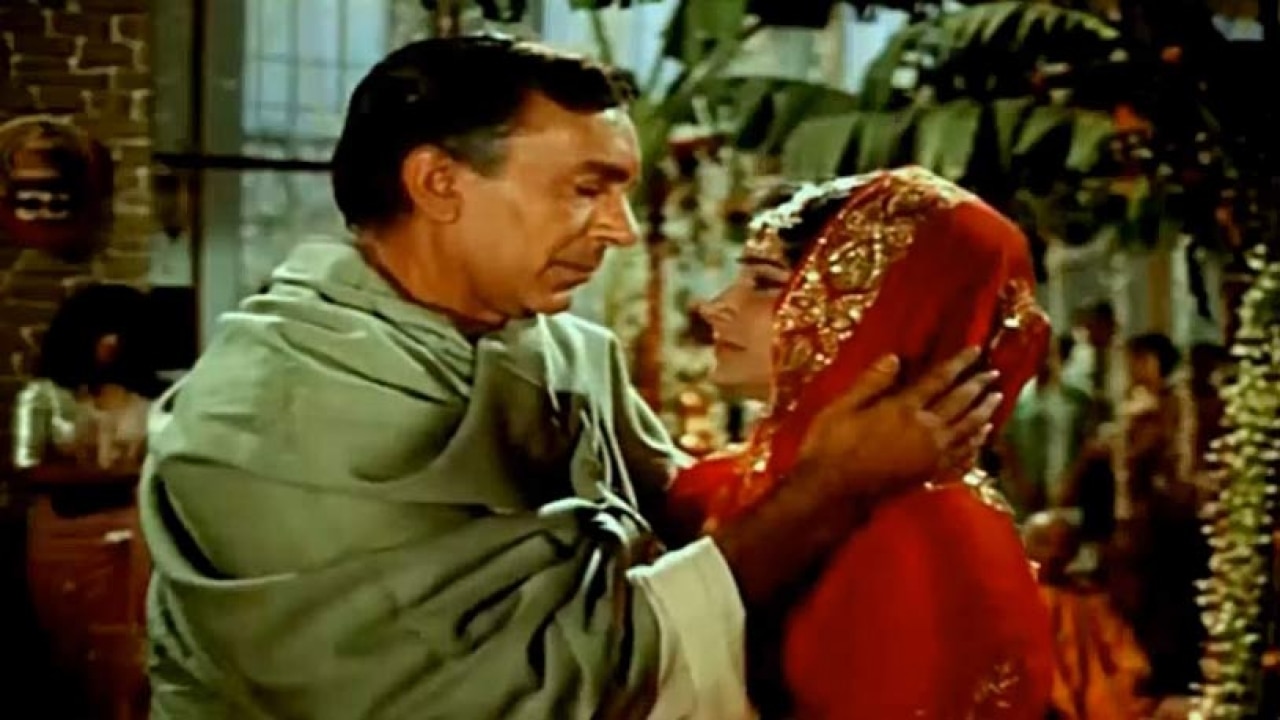
Hindi films have a good tradition of comedy. Right from the 1940s and 1950s when Roop Kumar Shorey and IS Johar came up with comic dramas such as Ek Thi Ladki (1949), Shrimati Ji (1952) and Hum Sab Chor Hain (1956) to Hrishikesh Mukherjee’s hilarious productions Chupke Chupke (1975) and Golmaal (1979) to more recent ventures such as Delhi Belly (2011) and Fukrey (2013), filmmakers have given us enough to laugh about through the glorious history of Hindi cinema.
One such film that stands out in the comic genre is Padosan (1968). Directed by Jyoti Swaroop, the film had Sunil Dutt, Kishore Kumar, Mehmood and Saira Banu deliver a laugh riot to audiences through their histrionics and shenanigans. Think of the songs ‘Ek chatur naar’ or ‘Meri pyaari Bindu’. The songs enhanced the overall comic quotient of the film. It helped that the film’s soundtrack was composed by Rahul Dev Burman and the songs were written by Rajendra Krishan, two men who had a fine sense of humour themselves. As Javed Akhtar observes in the upcoming episode of The Golden Years: 1950-1975, which features Hindi film songs from 1968, “Very few films have been made — Chalti Ka Naam Gaadi (1958), Pyar Kiye Jaa (1966) and Padosan — which are purely in the comic genre… And both RD Burman and Rajendra Krishan, who were both so talented, and who had such a terrific sense of humour, I am not surprised that they could give such great songs like there are in this film.” Krishan, who also wrote the dialogues, penned a couple of other fine numbers—‘Main chali, main chali’, ‘Bhai battur’ and ‘Kehna hai, kehna hai’—for the film.
If Padosan saw the adult characters turn child-like with their comic pranks and behaviour, Do Kaliyan, which released the same year, featured a very young Neetu Singh in a double role, singing a song that should have been sung by a worldly-wise adult character. ‘Bachchey mann ke sachhey’ which was picturised on Neetu in the film, had a nice, simple tune, but the lyricist Sahir Ludhianvi left his stamp on the number with lyrics like— ‘Bhaasha ki taqraar nahin, mazhab ki deewaar nahin’. Do Kaliyan also had the extremely hummable ‘Tumhaari nazar kyun khafaa ho gayee’, picturised on the film’s lead pair Biswajeet and Mala Sinha.
Another film, which had children featuring prominently in it, was ‘Chakkey pe chakka’ from Brahmachari (1968). The film, which starred Shammi Kapoor, Rajshree, Mumtaz and Pran, also had the up tempo, popular song ‘Aaj kal tere mere pyaar ke charchey har zubaan par’. While this song was penned by Hasrat Jaipuri, it was Shailendra who walked away with the Best Lyricist award for his song ‘Main gaaoon tum so jao’ in the film.
But to return to Sahir, another film that he wrote very good lyrics for during this year was the Ramanand Sagar-directed international spy thriller Aankhen. The film had Dharmendra, Mala Sinha and Mehmood. Sahir’s song ‘Uss mulk ki sarhad ko’, which featured as the film’s credits roll, was a remarkable statement in patriotism. Then for the Mala Sinha song ‘Milti hai zindagi mein’, Sahir imbued his lyrics with the right mix of despondency while talking about unrequited love. Aankhen also saw Mehmood and Mala Sinha come together for the song ‘De daata ke naam tujhko Allah raakhe’.
Like in ‘Bachchey mann ke sachchey’, Sahir had this habit of putting in a strong social comment even in songs that were meant for lighter moments in the film. Similarly, ‘De data ke naam’, while ostensibly for the purpose of the characters seeking alms, is actually a call by Sahir for secularism, since he embellishes the lyrics with repeated references to ‘Ram’ and ‘Allah’ in the song. Another supposedly fun song that featured Mehmood, but through which Sahir made a scathing critique of society, was ‘Khaali dabba, khaali botal’ from Neel Kamal (1968). The film also had the weepy Mohammed Rafi song ‘Baabul ki duyaaein leti ja’, picturised on Waheeda Rehman’s and Balraj Sahni’s characters, which became very popular with film audiences back in the day. Javed Akhtar reveals the reason for this: “This song was actually real in its essence for its singer. This is because Rafi sa’ab’s daughter had been married off just a few days before he came to sing this song… And so when he came to sing this song, he was actually crying at the mike. When things come from the heart, they have a far-reaching effect.”
To know more about the many wonderful Hindi film songs from 1968, watch the next episode of The Golden Years: 1950-1975 with Javed Akhtar this Sunday at 8 pm.